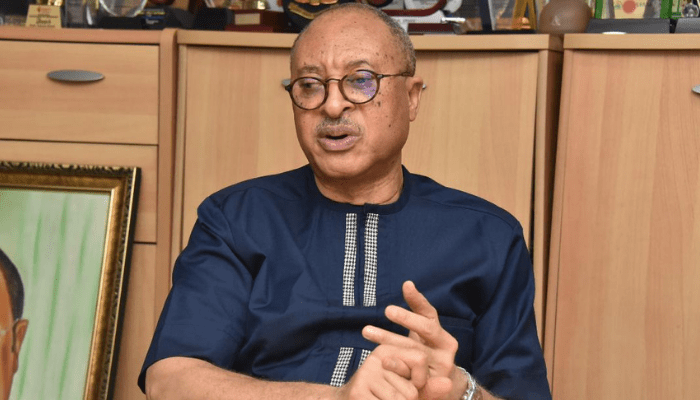Former presidential candidate and political economist Professor Pat Utomi described Nigeria’s National Assembly members as “slaves” to the executive arm of government, owing to their dependence on constituency projects for political survival.
Speaking at a press conference during the Big Tent Shadow Retreat, Utomi criticised the legislative arm for abandoning its core duty of lawmaking and succumbing to executive manipulation.
“Legislators were not elected to execute projects. They were elected to make laws in the interest of the common good,” he stated.
Utomi argued that many lawmakers now prioritise constituency projects over governance, due to pressure from their constituents and the promise—or threat—of executive funding.
“They return to their constituencies and are asked, ‘What project did you bring?’ If you did not bring one, you’re seen as a failure. That dynamic forces them to become subservient.”
He claimed this practice has turned the legislative branch into mere tools for political survival, undermining the principle of separation of powers.
Utomi further warned that Nigeria’s democracy lacks the institutional maturity seen in other countries, noting that weak structures and compromised checks and balances continue to hinder progress.
He drew a historical comparison between the United States and Argentina, once economic peers in the early 20th century, to show how institutional strength makes or breaks nations.
“By the 1990s, America had become a dominant global economy, while Argentina’s GDP had fallen to West African levels. The difference lies in institutional evolution,” he said.
Utomi stressed the importance of building institutions that support accountability, debate, and the common good. He pointed to the U.S. system of checks and balances as a model that allowed its democracy to mature.
He also criticised Nigeria’s political party system, particularly the frequency of defections without consequence, calling for reforms like proportional representation to stabilise governance.
He explained that the Shadow Retreat was organised to train opposition figures in public policy, ethics, and effective civic engagement.
The shadow retreat calls for stronger democratic institutions, deeper civic education, and a return to principled leadership in both the legislature and governance.
The retreat member, Nana Kazaure, echoed Utomi’s concerns, lamenting the toxicity of public discourse in Nigeria.
“Our conversations today are rooted in bigotry and division.
“We need civil, constructive dialogue to rebuild this country,” she said.







